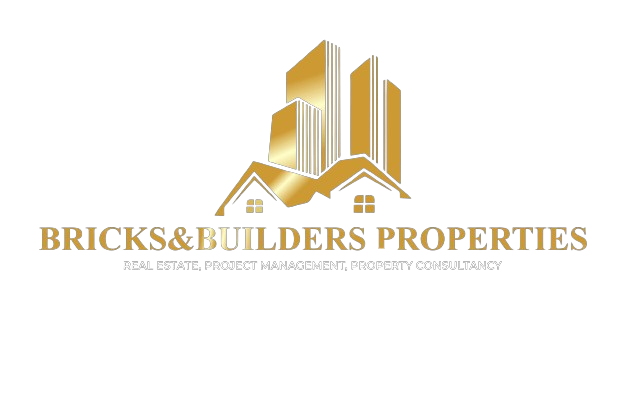Services
> Services

Property
Sales
Process of selling real estate, which includes residential, commercial, and industrial properties. Property sales encompass all activities related to the marketing, negotiation, and transfer of ownership of a property from the seller to the buyer.
Investment Consulting
Professional services provided to clients to help them make informed decisions about their real estate investments. This involves a detailed analysis and strategic planning to ensure the best possible return on investment (ROI).
Property
Management
Comprehensive process of overseeing and handling the operations, maintenance, and administration of real estate properties. This service is typically offered by professional property management companies or individual property managers.
Property Sales
Property types
Landed properties, commercial buildings & residential.
Property Listing
- Preparing the property for sale, which may include staging and making necessary repairs.
- Listing the property on various platforms, including real estate websites, MLS (Multiple Listing Service), and through direct marketing channels.
Legal and Documentation
- Preparing necessary legal documents such as sales contracts, disclosure statements, and property deeds.
- Ensuring compliance with local, state, and federal real estate laws and regulations.
Investment Consulting
Real Estate Investment Consulting
- Residential Real Estate: Advising clients on investing in single-family homes, condos, and multi-family properties.
- Commercial Real Estate: Providing guidance on investments in office buildings, retail spaces, industrial properties, and mixed-use developments.
- Land Investments: Offering expertise in purchasing and developing land for residential, commercial, or agricultural use.
- REITs (Real Estate Investment Trusts): Helping clients invest in REITs, which allow for indirect ownership of real estate assets.
Risk Management Consulting
- Hedging Strategies: Advising on strategies to hedge against market risks, including currency, interest rate, and commodity risks.
- Insurance Products: Recommending insurance products to protect against various financial risks.
- Contingency Planning: Developing plans to mitigate the impact of unforeseen events on investments.
Property Management
About Property Management
This service is designed to relieve property owners of the daily responsibilities associated with managing their properties, ensuring that the properties are well-maintained and the investment’s value is maximized.
Maintenance and Repairs
- Routine Maintenance: Scheduling and overseeing regular maintenance tasks to ensure the property remains in good condition, such as landscaping, cleaning, and preventive maintenance.
- Emergency Repairs: Providing 24/7 emergency repair services to handle urgent issues promptly, minimizing damage and ensuring investor’s safety.
Types of Properties Managed
- Residential Properties: Including single-family homes, multi-family units, apartments, and condominiums.
- Commercial Properties: Such as office buildings, retail spaces, industrial properties, and mixed-use developments.
- Vacation Rentals: Including short-term rental properties such as vacation homes and Airbnb listings.
Project Management
Project Management Types
Agile Project Management, scrum project management and Waterfall project management.
Importance of Project Management
- Achieving Goals: Ensures that project goals are clearly defined, planned, and met.
- Efficiency: Improves resource management and reduces waste.
- Risk Management: Identifies and mitigates potential risks and issues.
- Quality Control: Ensures deliverables meet the required standards.
- Stakeholder Satisfaction: Engages stakeholders and meets their expectations.
- Accountability: Provides clear roles and responsibilities, ensuring accountability throughout the project lifecycle.
Roles in Project Management
- Project Manager: The person responsible for planning, executing, and closing the project.
- Project Sponsor: The executive or group that provides financial resources and support for the project.
- Project Team: The group of individuals who work together to achieve project goals.
- Stakeholders: Individuals or groups affected by or involved in the project, including clients, team members, and executives.
Satisfied Customers




Frequently Asked Questions
Here are some answers to the questions we receive the most about our services. If we missed anything, please do not hesitate to contact us. We’ll be happy to help
Why was this location chosen for development?
Developers explain the strategic importance of the location, including factors like accessibility, local amenities, and market demand.
What is the expected market demand for properties in this area?
Market research data, demographic trends, and economic forecasts are presented to justify the development
How does this development compare to others in the area?
How does this development compare to others in the area?
Competitive analysis is provided to highlight unique selling points and advantages over similar projects.
What are the property management plans post-completion?
Developers outline plans for property management, maintenance, and tenant services if applicable.
Are there any warranties or guarantees provided?
Details on structural warranties, appliance guarantees, and other post-sale assurances are shared.
What are the homeowners’ association (HOA) fees and what do they cover?
Developers provide information on HOA fees, what they include, and the governance structure of the association.
How do I know if a house or land is priced fairly?
Compare the house price with similar properties in the area using tools like consulting a real estate agent.
What is a mortgage pre-approval, and why is it important?
A pre-approval is a lender’s estimate of how much you can borrow. It shows sellers you’re a serious buyer and can afford their property.
What are the closing costs when buying a home?
Closing costs typically range from 2% to 5% of the home’s purchase price and include fees for appraisal, inspection, title search, and more.
How do I determine the best listing price for my home?
Use a comparative market analysis (CMA) from a real estate agent and consider current market conditions.
What should I do to prepare my home for sale?
Clean and declutter, make necessary repairs, and consider staging to highlight your home’s best features.
